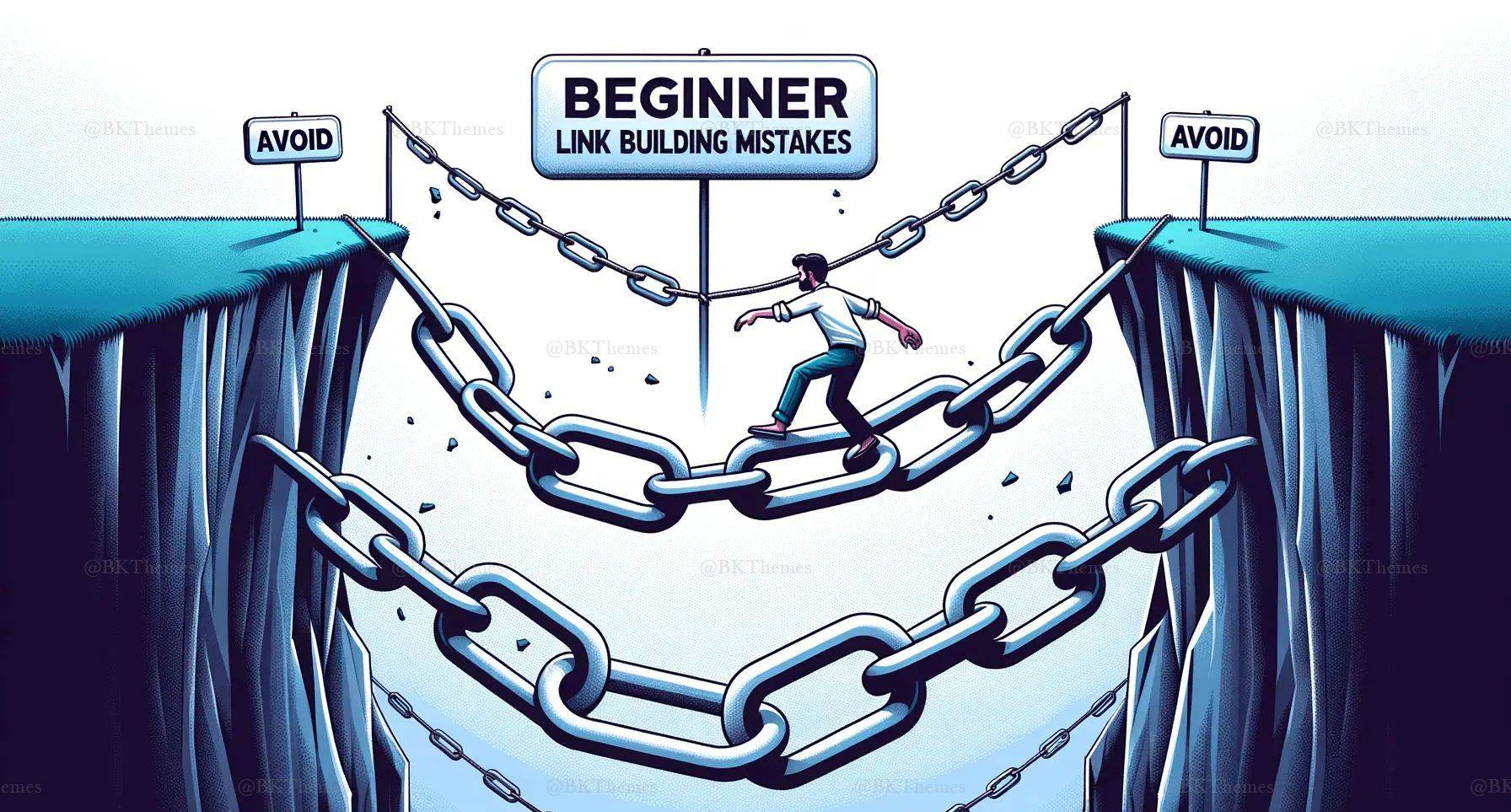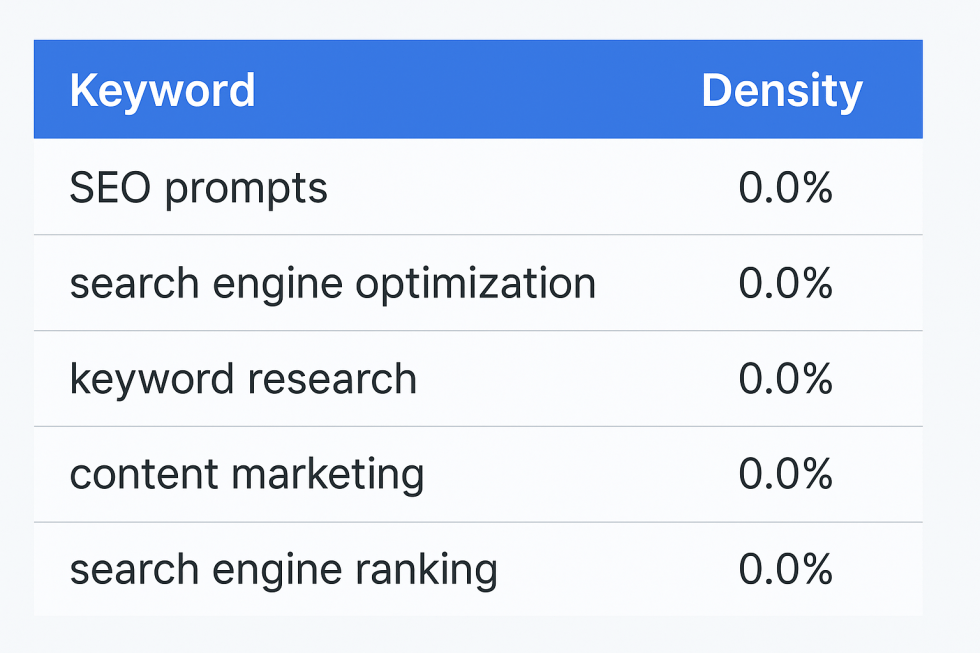
Link building remains one of the cornerstones of search engine optimization (SEO). For beginners, mastering link building can be a game-changer, driving organic traffic and improving search rankings. However, diving into link building without proper knowledge can lead to costly mistakes that harm your website's performance rather than boost it. This guide highlights the most common link building mistakes beginners should avoid in 2025 and provides tips for creating a strong backlink strategy.
Why Link Building Matters
Search engines like Google view backlinks as votes of confidence. When reputable websites link to your content, it signals that your site is trustworthy and valuable. Effective link building can:
-
Improve your domain authority.
-
Increase your website's visibility.
-
Drive referral traffic.
-
Build credibility within your niche.
Avoiding common mistakes is critical to ensuring your link building efforts yield positive results rather than penalties.

Common Link Building Mistakes to Avoid
1. Focusing on Quantity Over Quality
Beginners often prioritize acquiring as many backlinks as possible, assuming that more links equal better rankings. However, low-quality or spammy links can harm your SEO efforts and even lead to penalties.
What to Do Instead:
Focus on acquiring high-quality links from authoritative, relevant websites. A single backlink from a trusted site is far more valuable than dozens of links from questionable sources.
2. Ignoring Relevance
Links from unrelated websites may seem harmless, but they offer little value in terms of SEO. Relevance is a critical factor that search engines consider when evaluating backlinks. Having a backlink from an autostore means nothing to your fashion business you are trying to promote.
What to Do Instead:
Ensure the websites linking to your content are relevant to your industry or niche. For example, if you run a fitness blog, aim for backlinks from health and wellness websites.
3. Using Exact Match Anchor Text Excessively
Exact match anchor text links (where the anchor text is an exact keyword you want to rank for) can raise red flags with search engines if overused.
What to Do Instead:
Diversify your anchor text. Use branded terms, partial match keywords, or even generic phrases like "click here" to keep your backlink profile natural.
4. Buying Links
While purchasing backlinks may seem like a quick win, it's a risky practice that violates Google's guidelines. Paid links can lead to penalties and damage your site's reputation.
What to Do Instead:
Focus on earning backlinks organically by creating high-quality content and building relationships with other website owners.
5. Neglecting Content Quality
Link building efforts will fall flat if your content isn't worth linking to. Poor-quality or irrelevant content won't attract organic backlinks.
What to Do Instead:
Invest in creating valuable, shareable content that provides solutions, insights, or entertainment to your target audience.
6. Overlooking Internal Linking
While external backlinks are essential, internal links also play a vital role in SEO. Beginners often overlook this easy yet impactful strategy.
What to Do Instead:
Use internal links to connect related pages on your site. This improves navigation, distributes link equity, and helps search engines understand your site structure.
7. Ignoring Nofollow Links
Many beginners dismiss nofollow links as "useless" since they don't pass link equity. However, nofollow links can still drive traffic and enhance your brand's visibility.
What to Do Instead:
Don't shy away from nofollow links. Focus on building a natural backlink profile that includes both dofollow and nofollow links.
Also include video links, PDF links, and images links they all matter.
8. Failing to Monitor Backlinks
Neglecting to monitor your backlink profile can lead to issues like toxic links or lost opportunities for growth.
What to Do Instead:
Use tools like Google Search Console, Ahrefs, or SEMrush to track your backlinks. Regularly audit your profile to disavow harmful links and capitalize on new opportunities.
9. Skipping Outreach Personalization
Mass-sending generic outreach emails to request backlinks rarely yields positive results. Website owners are unlikely to respond to cookie-cutter messages.
What to Do Instead:
Personalize your outreach by referencing specific content or demonstrating genuine interest in the recipient's website. Building authentic relationships leads to better results.
10. Expecting Immediate Results
SEO, including link building, is a long-term strategy. Beginners often become frustrated when they don't see immediate improvements in rankings.
What to Do Instead:
Be patient and consistent. It can take weeks or even months for backlinks to impact your rankings. Focus on sustainable practices for long-term success.
Tips for Effective Link Building
-
Create Link-Worthy Content: Publish high-quality, unique, and engaging content that other websites want to link to.
-
Leverage Social Media: Share your content on social platforms to increase visibility and attract organic backlinks.
-
Collaborate with Influencers: Partner with influencers in your niche to expand your reach and earn authoritative backlinks.
-
Engage in Guest Blogging: Write guest posts for reputable websites in your industry to establish authority and build valuable links.
-
Monitor Competitors: Analyze your competitors' backlink profiles to identify potential opportunities.
Conclusion
Link building is a powerful strategy for improving your website's SEO, but it must be approached carefully. By avoiding these common mistakes and following best practices, beginners can build a strong foundation for long-term success. Remember, effective link building is about quality over quantity, relevance, and persistence. With the right approach, you can create a robust backlink profile that boosts your rankings and drives meaningful traffic to your site.
📧 Stay Updated
Get the latest web development tips and insights delivered to your inbox.




